Let’s Fix Your Jaws
The most common presenting signs and symptoms of temporomandibular joint disorder include jaw tenderness that may feel like a toothache, as well as headache or an earache. The pain may get worse when chewing food and a person may hear and/or feel a clicking or popping noise when eating, as well as an overall decreased jaw range of motion. In addition, this condition may be associated with neck stiffness and pain, shoulder pain that radiates down the arm, and ringing in the ears (tinnitus).
Teeth grinding can cause jaw pain and, since many people do this while sleeping, you may not be aware that you are, too. Symptoms of bruxism include jaw, face, and neck pain; headaches; and dental problems, including fractured and worn down teeth. Besides teeth grinding, other muscle overuse conditions, like teeth clenching and excessive gum chewing, can also cause jaw pain. Cracked tooth may cause intermittent, dull or sharp jaw pain that is triggered by biting or eating. Other dental problems like tooth abscesses and dry sockets may also cause jaw pain. Injuries to the jaw or face, including a dislocated or broken jaw, can cause significant pain.


In order to access the cause of your jaw pain, your doctor will first ask you several questions about your pain, like when it began, how severe it is, and whether the pain is intermittent or constant. He will also inquire about whether there has been any recent jaw trauma, as well as habits that may trigger jaw pain. The timing of the jaw pain, like whether it occurs in the morning upon awakening, can also help a doctor figure out the diagnosis. Specifically, for suspected TMJ disorder, your doctor may measure the range of motion of your jaw opening. While a normal opening is 35 to 55 millimeters, people with TMJ often have a jaw opening that is less than 25 millimeters. Patients with TMJ may also have muscle tenderness around the TMJ.
For TMJ disorder, a combination of medications (for example, a nonsteroidal anti-inflammatory and/or a muscle relaxant) and self-care therapies (for example, trigger avoidance and changing sleeping posture) is recommended.
If teeth grinding is the culprit behind your painful jaw, a mouth guard may be helpful.
Book An Appointment
You can request an appointment via completing the form below. Our staff will get back to you with availability best matched to your request. If you have a dental emergency please call us at 0323 400-01-01
Feel Free To Contact Our Friendly Reception Staff With Any Dental Enquiry.

Emergency Services
+92 323 4000101
